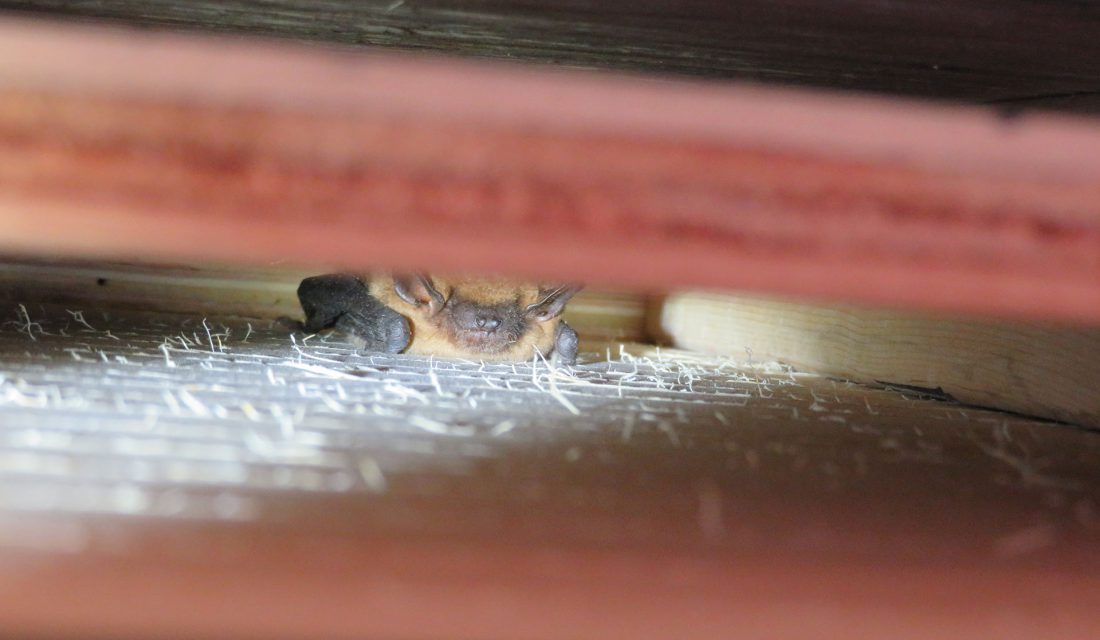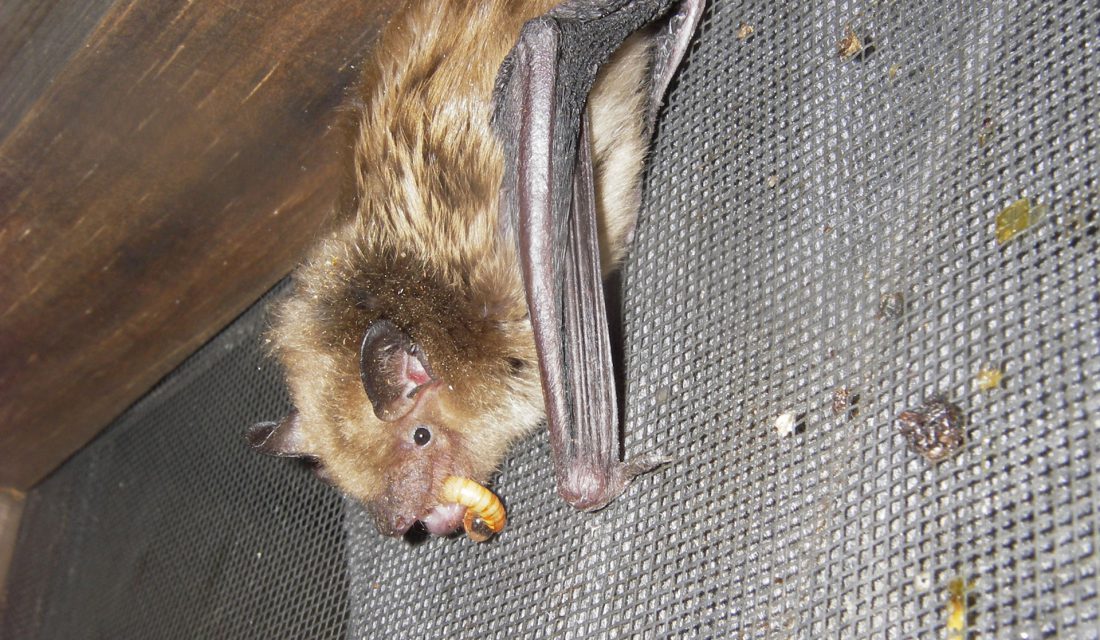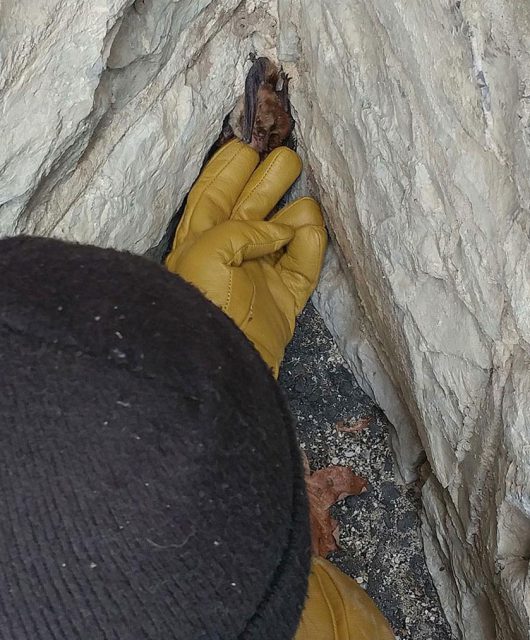It’s pretty unusual to see bats during the winter.
This is because most bat species in Canada have either migrated south for the winter or are hibernating underground. However, there is one species of bat that will hibernate in buildings: the Big Brown Bat.
Big Brown Bats
Big Brown Bats can hibernate in the walls or attics of buildings. Bats naturally arouse from hibernation several times during winter and may move around during these periods. Additionally, significant temperature variations may prompt bats to move to a different area with more suitable temperatures for hibernation.
This means that hibernating bats can occasionally show up in people’s living spaces. You may never know if bats are hibernating in your home because they are mostly inactive and go all winter without feeding! This means they are not producing guano (droppings).
Bats in The House

If you find a bat in your home during the winter, do not touch it with your bare hands (one alternative is to use thick gloves). Like most mammals, some bats can become infected with the rabies virus. If household pets or human residents have come into contact with a bat, a public health professional should be contacted, and the bat should be kept in a safe location to prevent further contact until it is determined whether the bat should be submitted for rabies testing.
If no contact occurred and the temperature outside is above freezing, the bat can be released outside. If the temperature is below freezing, the bat should be transported to a wildlife rehabilitation centre. Be sure to phone ahead as not all centres will accept bats.
Caring for Bats Until They Can Be Moved to a Safe Location
All Canadian bats are insectivores, meaning they only eat insects. Bats in captivity are fed mealworms.

Transporting live bats can be difficult because they are accomplished escape artists – Big Brown Bats can chew their way out of paper bags and fit through the bars of hamster cages! The best way to transport them safely is to use a sturdy cardboard box, such as a shoe box, with a small towel inside and the lid secured.
Bring in the Experts
If all else fails, you can contact your local bat expert. I retrieved a female Big Brown Bat from a bedroom a couple of weeks ago, much to the relief of the homeowner!
- List of wildlife rehabilitation centres in Ontario >
- List of bat experts by province (not comprehensive) >





1 comment